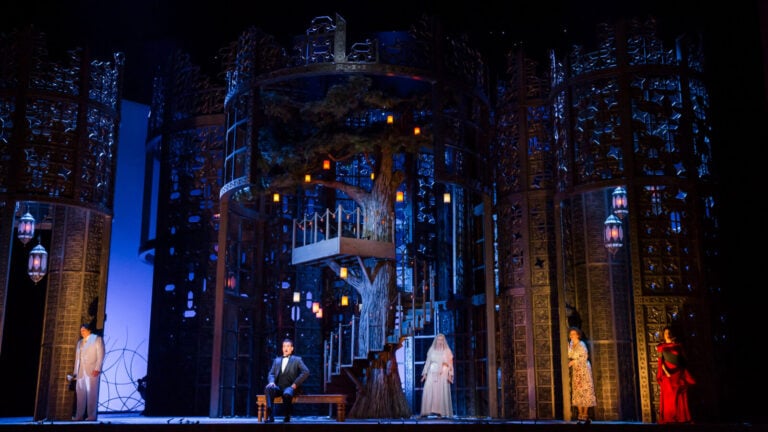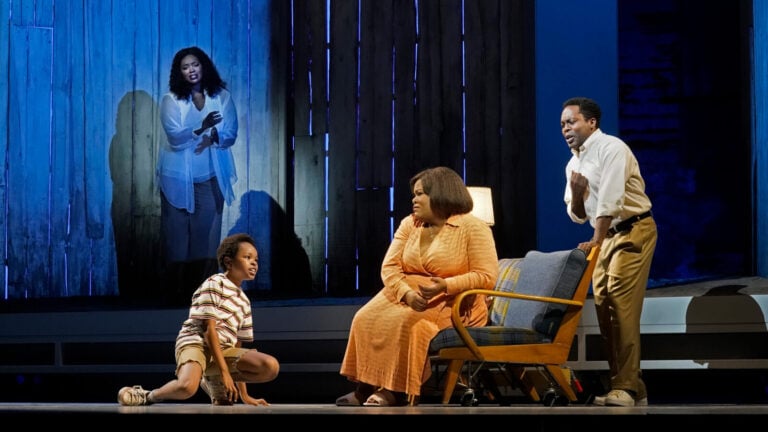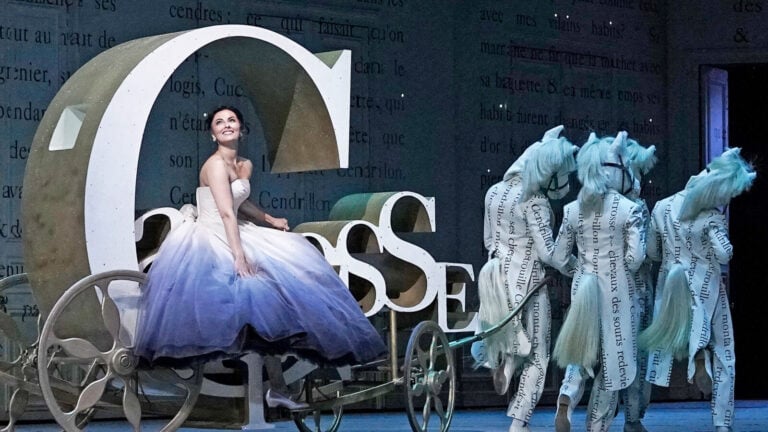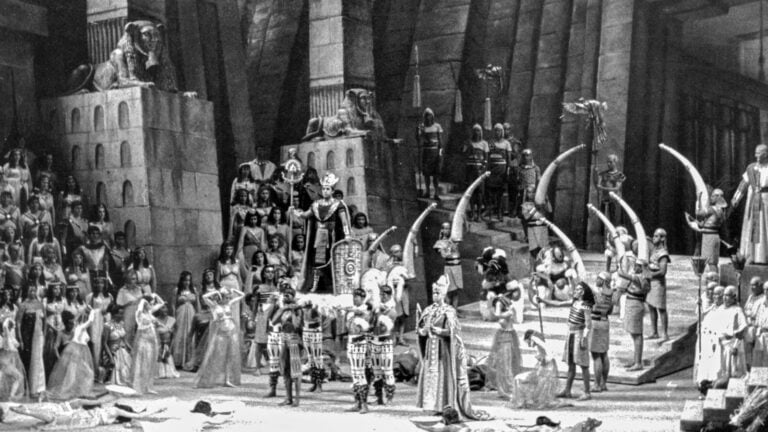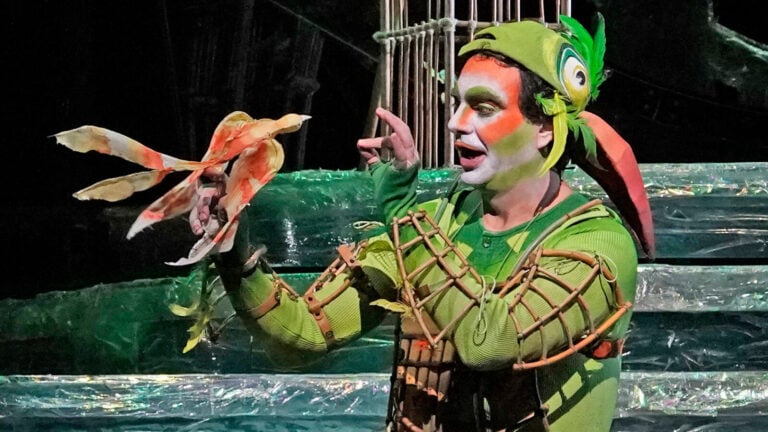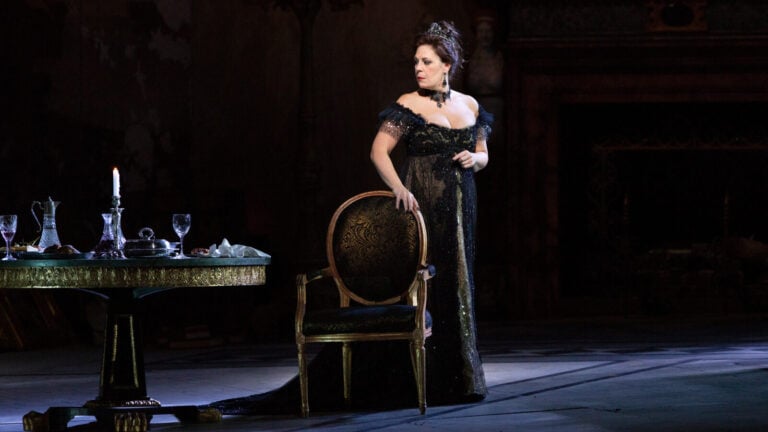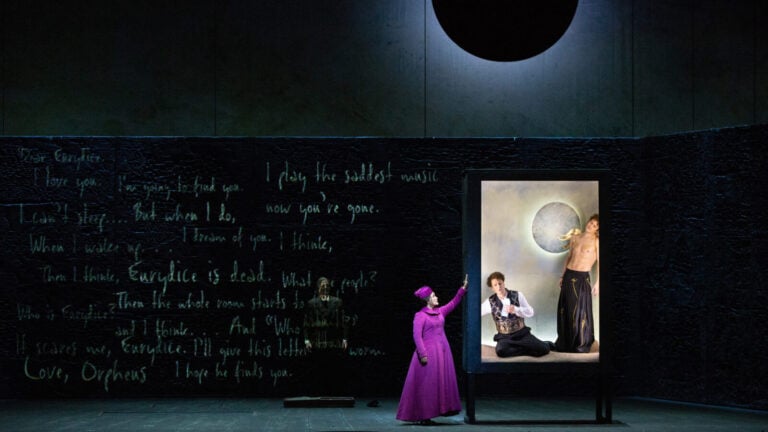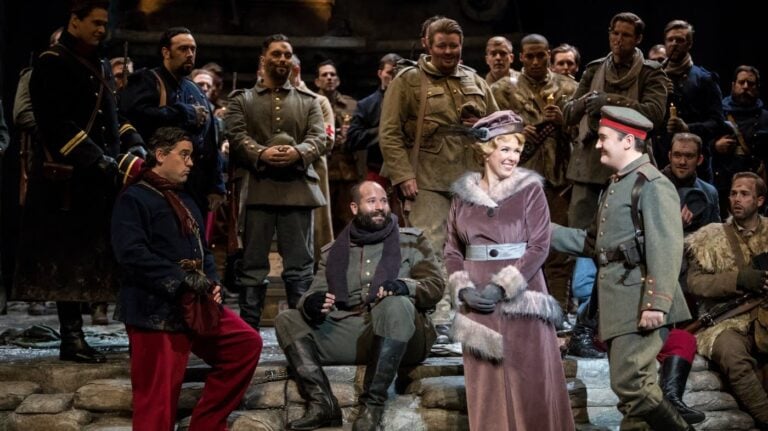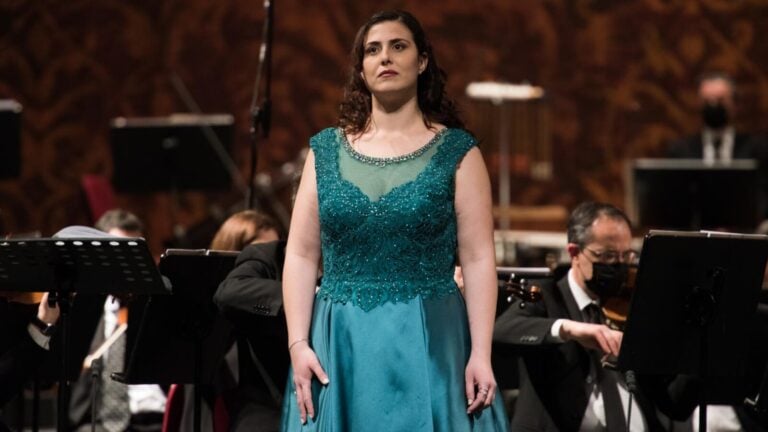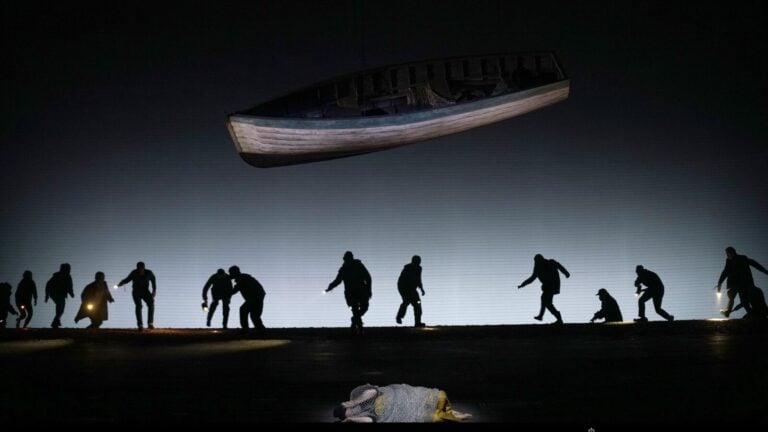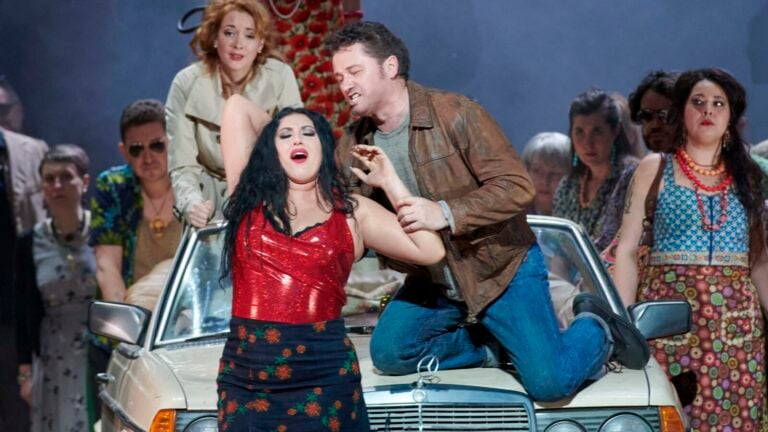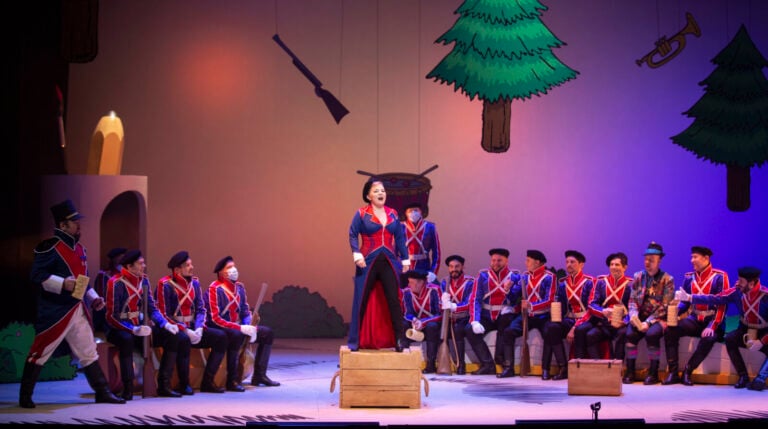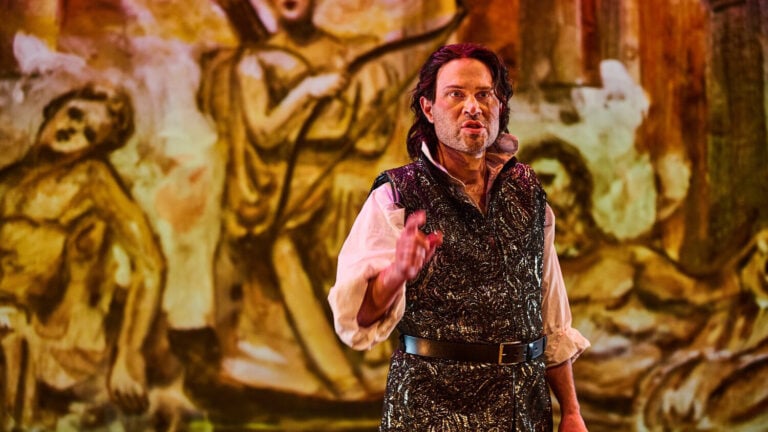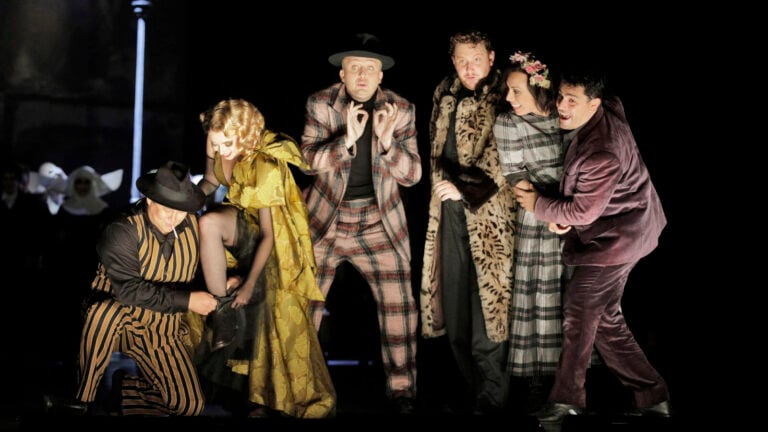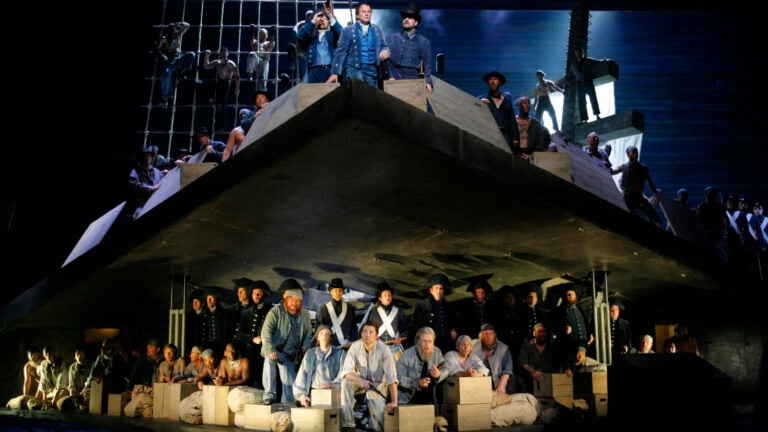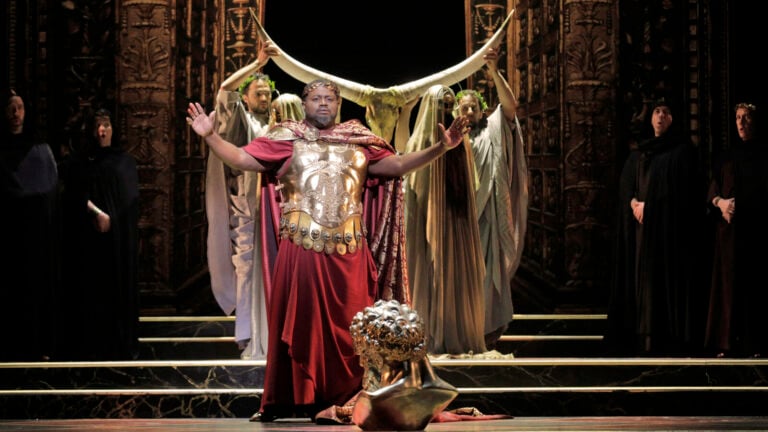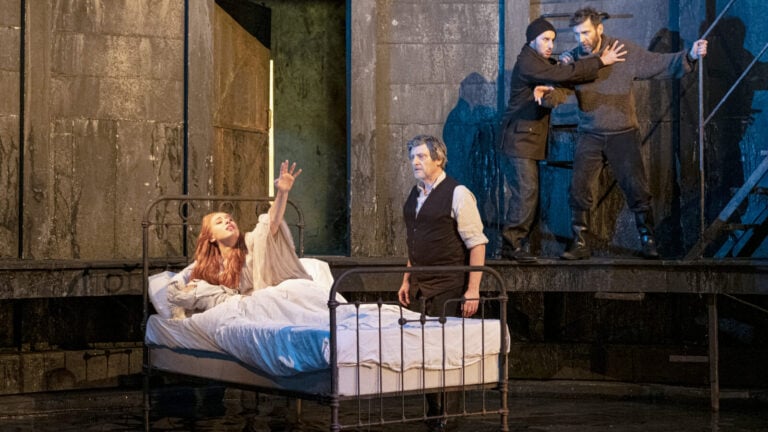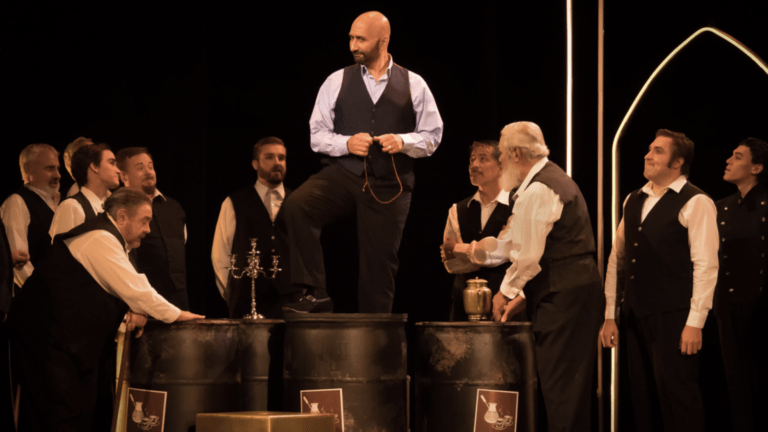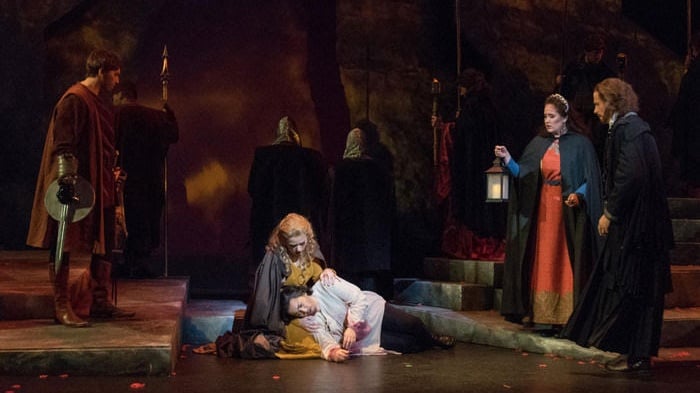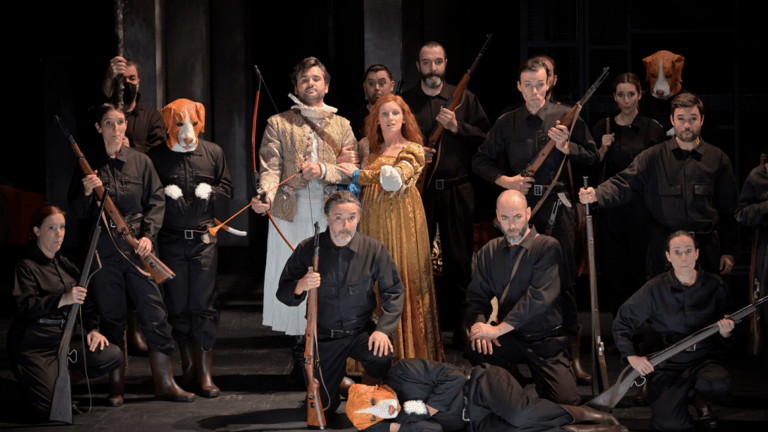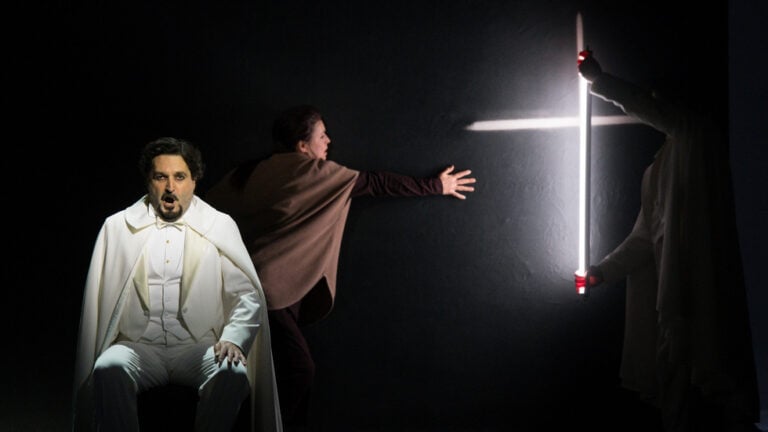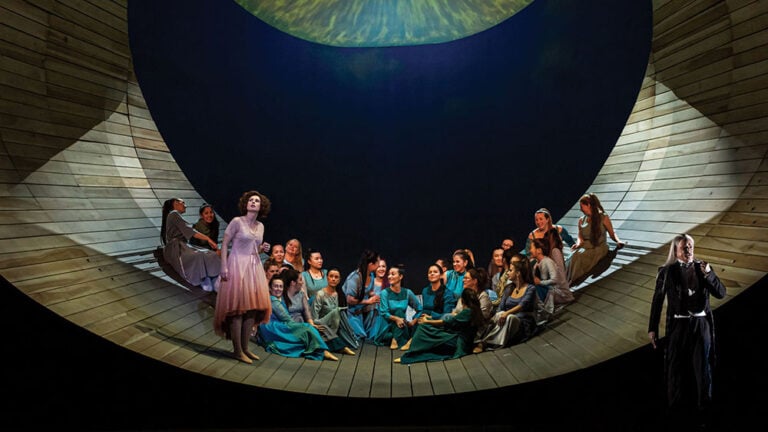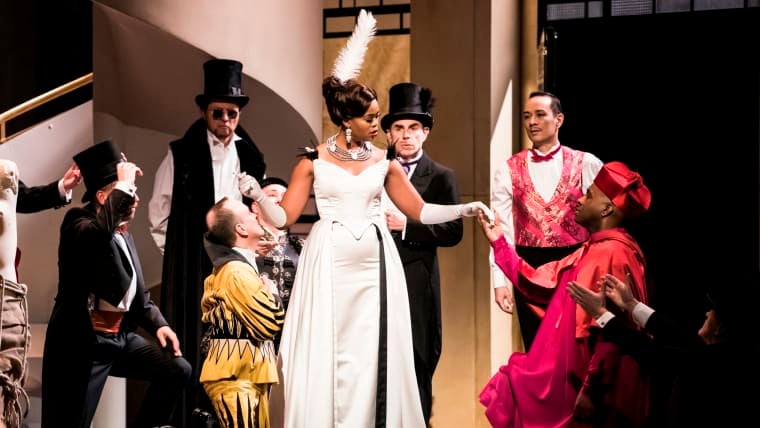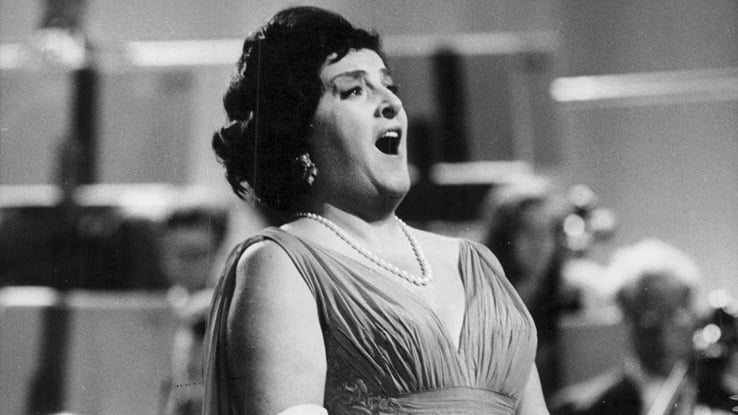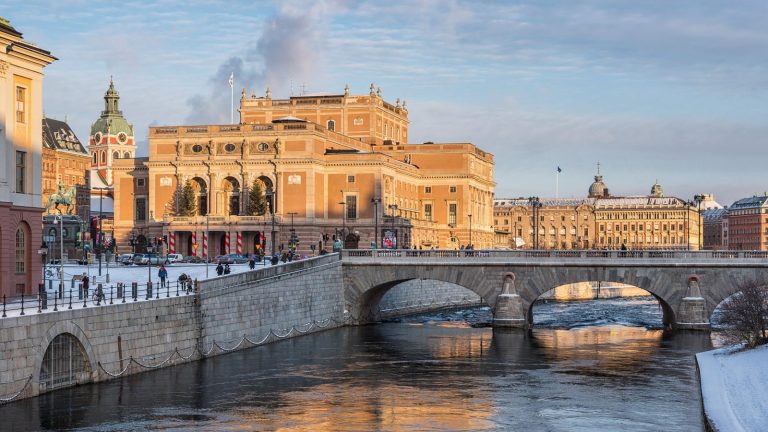Home | Programs | The WFMT Opera Series | Page 6
Mozart’s ‘Le nozze di Figaro’
Daniele Rustioni takes the podium to lead Mozart’s breathless and breathtaking comedy.
Blanchard’s ‘Fire Shut Up in my Bones’
The opera — the Met’s first performance of an opera by a Black composer — tells a poignant and profound story about a young man’s journey to overcome a life of trauma and hardship.
Massenet’s ‘Cinderella’ [Abridged English-language version]
Continuing a treasured holiday tradition, the Met presents a new installment in its series of abridged opera adaptations for family audiences.
‘Aida’ at the Met
Highlights from great Met broadcasts of Verdi’s Aida in celebration of the 90th anniversary of Met broadcasts and the 150th anniversary of Aida.
Mozart’s ‘The Magic Flute’ [Abridged English-language version]
The Met’s abridged, English-language version of Mozart’s magical fairy tale is a classic holiday treat for audiences of all ages.
Puccini’s ‘Tosca’
Sondra Radvanovsky stars in the title role, sharing the stage with tenors Brian Jagde as the painter-revolutionary Cavaradossi and bass-baritone Evgeny Nikitin as the vile police chief Scarpia. Yannick Nézet-Séguin conducts.
Aucoin’s ‘Eurydice’
American composer Matthew Aucoin has created a new, captivating, 21st-century take on the myth of Orpheus.
Puts’ Silent Night
Recounting a miraculous moment of peace during one of the bloodiest wars in human history, Scottish, French, and German officers defy their superiors and negotiate a Christmas Eve truce. The Pulitzer Prize-winning music underscores the yearning, despair, and hope of the soldiers living in the trenches. Silent Night masterfully juxtaposes the bombastic sounds of war with serene songs from home, …
Verdi’s Luisa Miller
Rome Opera presents a stunning performance of Verdi’s Luisa Miller, starring Roberta Mantegna in the title role, alongside Michele Pertusi as Count Walter, Antonio Poli as Rodolfo, and Daniela Barcellona as Federica. Michele Mariotti conducts the Rome Opera Orchestra and Chorus from the stage of Rome’s Teatro dell’Opera.
Britten’s Peter Grimes
In Britten’s Peter Grimes, maritime atmosphere, the crudity of people’s lives and passions, and the complex, impenetrable personality of the protagonist come together in a tragedy which ferments and explodes in the din of silence and hearsay. A tragedy which is immediately forgotten gives way to the self-righteousness of everyday lives and the movement of the sea itself.
Bizet’s Carmen
It’s a story full of misunderstandings: Love is confused with desire, an affair with an exclusive relationship, affection with possession, and violence with passion. But the highest price in this web of dysfunctional relationships is paid by Carmen – a woman who loves her independence more than anything else, including men.
Donizetti’s La Fille du régiment
Marie was found on a battlefield as a infant, and was taken in by the 21st Regiment, where she was treated as a ‘daughter’. Her foster-father Sulpice tells her that she should marry a soldier from the Regiment. When Marie falls for a solider from the rival camp Tyrolean Tonio , it looks as though she may have to choose between her family and true love.
Handel’s Orlando
The warrior knight Orlando is madly in love with Angelica, Princess of Cathay. Angelica and the shepherdess Dorinda both love Prince Medoro. Deception and chaos reign. Can the sorcerer Zoroastro, benevolent guardian of Orlando, save the day?
Puccini’s La bohème
It’s 19th-century Paris, a world capital filled with bustling cafes, bold ideas and creative energy. Six struggling young artists dream of making it big and finding their perfect matches. Along the way, they learn to celebrate life for all that it’s worth.
Britten’s Billy Budd
Based on the novella by Herman Melville, the Benjamin Britten’s maritime masterpiece follows an innocent naval recruit who joins the crew of the H.M.S. Indomitable, helmed by a noble captain. But one commanding officer’s dark desires cause a tragic turn of events for the beloved young sailor…and himself.
Mozart’s La Clemenza di Tito
Rome in the first century A.D. is the most powerful civilization in the world. And yet even this greatest of capitals falls vulnerable to power players seeking glory. In a plight to keep his crown and save the city he loves, Emperor Titus is faced with the ultimate choice between mercy or murder.
Debussy’s Pelléas and Mélisande
An unspoken song, sumptuous orchestration, a love story inspired by the myth of Tristan and Iseult, and a poetic atmosphere: so many elements that make Claude Debussy’s Pelléas and Mélisande such a bewitching work.
Bottesini’s Alì Babà
With a libretto based on “Alì Babà and the Forty Thieves,” the well-known and lively story from One Thousand and One Nights, Alì Babà was composed by Giovanni Bottesini, an Italian composer and double bass virtuoso, known as the “Paganini of the bass”.
Rossini’s Tancredi
Set against the exotic backdrop of war, intrigue, and conquest in medieval Sicily, Tancredi follows the romance between the exiled soldier Tancredi the beautiful Amenaide. When Amenaide is sentenced to death for a crime she did not commit, a disguised Tancredi fights to defend both love and honor.
Rameau’s Hippolytus and Aricia
So great and pure is the love between Hippolytus and Aricia that the goddess Diane will do everything in her power to protect them.
Wagner’s Parsifal
For his very last opera, Richard Wagner choose to deepen some of the themes that have marked his artistic and human journey: the feeling of fault, guilt, redemption, sacred love and profane desire. His opera Parsifal is a showcase of some of the most beautiful music written for opera, it takes the artform into the realms of philosophy and mystic visions, as well as being a profound exploration of the great questions at the core of our human experience.
Rubinstein’s ‘The Demon’
The Russian-language opera — based on the controversial poem of the same title by Mikhail Lermontov — was composed by composer, conductor, pianist, and pedagogue Anton Rubinstein (of no relation to pianist Arthur Rubinstein). This performance is conducted by Paul Daniel and stars Alexandros Stavrakakis (Prince Gudal), Ray Chenez (The Angel), Evgenia Muraveva (Tamara), and Nicolas Cavallier (The Demon).
Massenet’s ‘Manon’
Manon steers a course between two worlds, escaping the convent to embrace the paths of desire and transgression and throw herself headlong into a passionate, yet self-destructive love affair…
Strauss’ ‘Elektra’
From 1965 this archive broadcast from Royal Swedish Opera is the sensational Swedish premiere of Strauss’ opera and is famed soprano Birgit Nilsson’s role debut as Elektra.
Verdi’s ‘Il trovatore’
This historic broadcast of Il trovatore was recorded at Jussi Björling’s last performance at the Swedish Royal Opera House in 1960, the scene where he made his opera debut in 1930. His counterpart was the legendary Hjördis Schymberg performing the role Leonora. In 1934, she sang with Björling in Puccini’s La Bohème and they sang over 100 performances together over …

